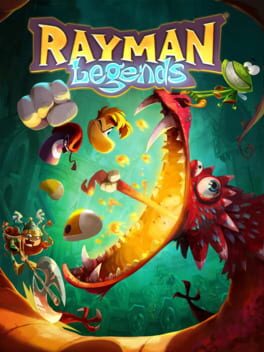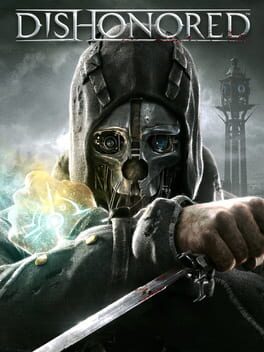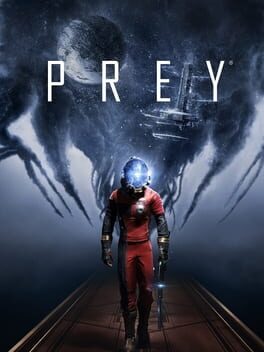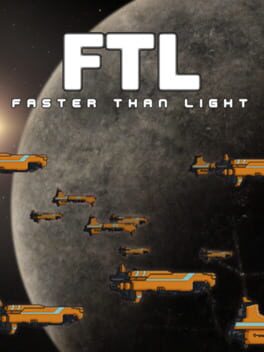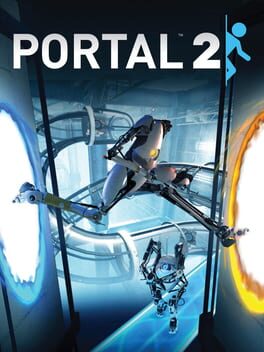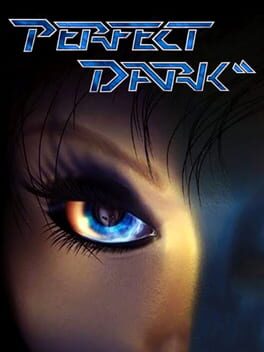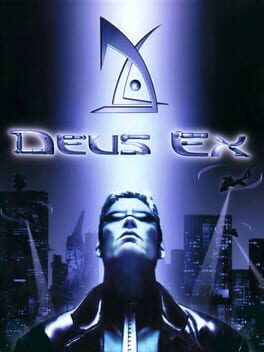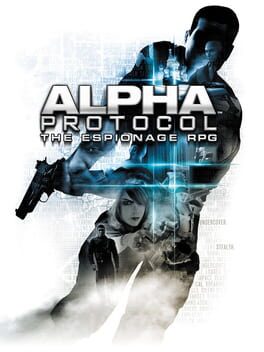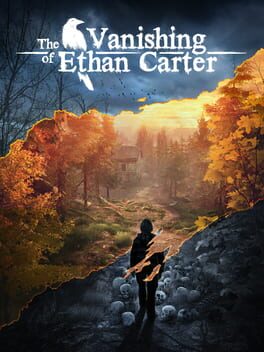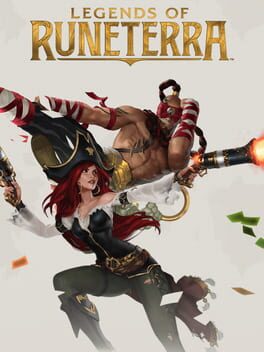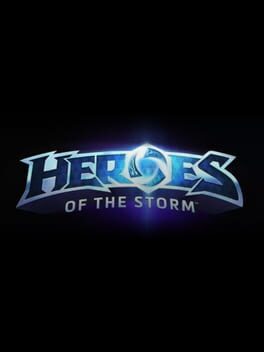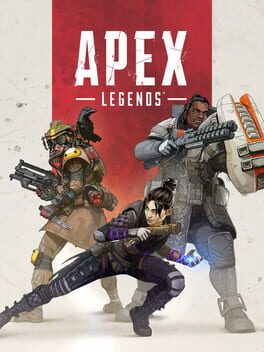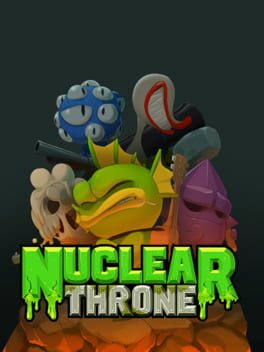synthezoid
2013
2012
Arkane's breakout title is a rock-solid immersive sim with a few novel ideas but an overly simplistic view of how to integrate those to offer a myriad of solutions to problems. Coming off of Dark Messiah of Might and Magic, which is a stellar fantasy murder simulator but not an amazing stealth game, it's easy to see how aiming to make their own superpowered take on Thief could have gone awry. Perhaps they were still finding their footing, though, since this game's success turned out to be a sign of good things to come from Arkane. Still, Thief, Deus Ex, or even their own smashing success Prey this is not.
Instead, most problems have a straightforward handful of meaningfully different answers--still more than most games, but the limited selection of abilities and the painfully binary moral choices keep it from the creativity and emergent solutions offered by the best of the genre. The bone charms are a nice idea--mainly stat-based bonuses that reward you for exploring, in contrast to the whole new abilities runes unlock, but so few of them are actually interesting or useful that they don't always feel rewarding to hunt down, particularly when it turns out they have nothing to do with your playstyle. If, instead, they were currency to upgrade your stats (much like runes are for your powers) then they'd both be more flexible and more useful. (Alternately, the system used in the DLC and sequel works fine, where some of them are stronger with drawbacks.) If you're going for a nonlethal run, this will feel even more restrictive, since over half the abilities and charms will simply be non-options most of the time.
A few levels have just-out-of-reach ledges and rooftops blocked by invisible walls which should seemingly be accessible with your blink and enhanced jump, which is highly disappointing to come across in a game like this, though luckily not for very long, since the levels are otherwise full of alternate paths. Still, this combined with the incessant tutorials reminding you "hey, there's more than one way to approach this!" for the first three or four levels serves to make it feel more railroaded than it may actually be--like the developers already thought of and scripted in whatever approach you're taking rather than thinking of it yourself. I mean, of course they did, but I don't want to feel like it.
Still, highly effective level design and the plain fun of what IS there in its toolset, along with a striking art style that has aged better than most late-console-generation games of its time, help make it fun the whole way through, and the crisp pacing makes it brisk enough to play through to completion.
Instead, most problems have a straightforward handful of meaningfully different answers--still more than most games, but the limited selection of abilities and the painfully binary moral choices keep it from the creativity and emergent solutions offered by the best of the genre. The bone charms are a nice idea--mainly stat-based bonuses that reward you for exploring, in contrast to the whole new abilities runes unlock, but so few of them are actually interesting or useful that they don't always feel rewarding to hunt down, particularly when it turns out they have nothing to do with your playstyle. If, instead, they were currency to upgrade your stats (much like runes are for your powers) then they'd both be more flexible and more useful. (Alternately, the system used in the DLC and sequel works fine, where some of them are stronger with drawbacks.) If you're going for a nonlethal run, this will feel even more restrictive, since over half the abilities and charms will simply be non-options most of the time.
A few levels have just-out-of-reach ledges and rooftops blocked by invisible walls which should seemingly be accessible with your blink and enhanced jump, which is highly disappointing to come across in a game like this, though luckily not for very long, since the levels are otherwise full of alternate paths. Still, this combined with the incessant tutorials reminding you "hey, there's more than one way to approach this!" for the first three or four levels serves to make it feel more railroaded than it may actually be--like the developers already thought of and scripted in whatever approach you're taking rather than thinking of it yourself. I mean, of course they did, but I don't want to feel like it.
Still, highly effective level design and the plain fun of what IS there in its toolset, along with a striking art style that has aged better than most late-console-generation games of its time, help make it fun the whole way through, and the crisp pacing makes it brisk enough to play through to completion.
2017
Moody, tactical, challenging, intense, deep, addicting, punishing, rewarding, downright dopaminergic, and impossibly, unbelievably entrancing.
When I started playing FTL, I was too stubborn to try Easy mode; I appreciate a good, fair challenge. Countless runs and dozens of hours later, I beat the game for the first time on Normal and achieved what I can only describe as my greatest victory in a video game. Between the clean, minimal visuals, the astonishingly atmospheric soundtrack by Ben Prunty, and the alternately cruel and magical narrative arc the game procedurally puts you through every time, FTL is the most immersive spacefaring game I've ever played. I really do feel like I'm lost in a hostile galaxy every single time. So, when I clawed my first victory out of the wreckage of the Rebel flagship, it didn't just feel like I had beaten a video game. It felt like I had won a war.
When I started playing FTL, I was too stubborn to try Easy mode; I appreciate a good, fair challenge. Countless runs and dozens of hours later, I beat the game for the first time on Normal and achieved what I can only describe as my greatest victory in a video game. Between the clean, minimal visuals, the astonishingly atmospheric soundtrack by Ben Prunty, and the alternately cruel and magical narrative arc the game procedurally puts you through every time, FTL is the most immersive spacefaring game I've ever played. I really do feel like I'm lost in a hostile galaxy every single time. So, when I clawed my first victory out of the wreckage of the Rebel flagship, it didn't just feel like I had beaten a video game. It felt like I had won a war.
2011
2007
2000
2000
Hong Kong is one of the best levels I've ever encountered in any game, ever.
The rest of Deus Ex is all just as strong, too.
My non-lethal run started out as a teeth-pulling, save-scumming stealth game (still fun, even if a bit basic and slow as such) and gradually evolved into ballistic-armoring, speed-boosting, and occasionally straight up invis-walking past enemies. The progression that the augmentations afford is incredible and empowering, but never so strong that one approach feels obviously superior--a tough proposition even among the best immersive sims. Admittedly, if you're not feeling creative, some newer Arkane games occasionally run into this thanks to the omnipresent strength of blinking around. System Shock 2, while a master class in atmosphere, doesn't really have that many viable playstyles. Thief is an incredible stealth game, and I love it for that, but Deus Ex director Warren Spector had bigger ideas: he wished you didn't have to play Thief as a stealth game in the first place. Deus Ex is the first great, even masterful execution of that idea.
Another thing that is striking about Deus Ex, even to this day: almost all of the meaningful choices in the game, where possible, are presented through mechanics, systems, and open-ended situations rather than menus, text boxes, or button prompts. Want to kill or spare a character? Just do it. (It might not be easy, but that only makes it more immersive.) Want to avoid learning the passcode to this door? Stack some boxes to climb into the window. Or do whatever else you want. Only you can judge yourself. Try to stick to the approach you feel is right, or experiment wildly. It's all here. It's all tight, atmospheric, and--as clunky as the stealth, shooting, and AI can seem--it all works together as a brilliant clockwork contraption of mechanics, simulation, and downright satisfying game design.
0451/10
The rest of Deus Ex is all just as strong, too.
My non-lethal run started out as a teeth-pulling, save-scumming stealth game (still fun, even if a bit basic and slow as such) and gradually evolved into ballistic-armoring, speed-boosting, and occasionally straight up invis-walking past enemies. The progression that the augmentations afford is incredible and empowering, but never so strong that one approach feels obviously superior--a tough proposition even among the best immersive sims. Admittedly, if you're not feeling creative, some newer Arkane games occasionally run into this thanks to the omnipresent strength of blinking around. System Shock 2, while a master class in atmosphere, doesn't really have that many viable playstyles. Thief is an incredible stealth game, and I love it for that, but Deus Ex director Warren Spector had bigger ideas: he wished you didn't have to play Thief as a stealth game in the first place. Deus Ex is the first great, even masterful execution of that idea.
Another thing that is striking about Deus Ex, even to this day: almost all of the meaningful choices in the game, where possible, are presented through mechanics, systems, and open-ended situations rather than menus, text boxes, or button prompts. Want to kill or spare a character? Just do it. (It might not be easy, but that only makes it more immersive.) Want to avoid learning the passcode to this door? Stack some boxes to climb into the window. Or do whatever else you want. Only you can judge yourself. Try to stick to the approach you feel is right, or experiment wildly. It's all here. It's all tight, atmospheric, and--as clunky as the stealth, shooting, and AI can seem--it all works together as a brilliant clockwork contraption of mechanics, simulation, and downright satisfying game design.
0451/10
2010
2019
"Welcome to corporate America."
It's been a long time since I've found the motivation to replay a game's story mode--games are often long, life is often busy, and my backlog is growing faster than I can shrink it. But this game's second run system which turns your understanding of the game world inside out by sending you through it in a different way while telling a new (but connected) story within it tipped me over the edge. I beat it on my first run about a week prior, took some time off to beat Resident Evil 4 (a masterpiece in its own right), then came right back to this. I'm working through my second run, Claire's B campaign, on Hardcore mode this time, and it is intense, difficult, and even more terrifying than last time. I love it.
It takes all the strengths of classic Resident Evil, (the interconnected, puzzle-littered hallways of the police station will feel familiar to anyone who has braved Resident Evil 1 Remake's mansion--have you? It's also an incredible game!) but anything that might have even verged on tedious is cleaned up; the map marks rooms with things left to find and unsolved puzzles instead of asking you to memorize them, write them down or wander aimlessly. While the beautiful, cinematic fixed camera angles of that game will be missed, the crisp control of Leon and Claire's shooting and the increased action allowed in boss fights or more dramatic enemy encounters as a result of the over-the-shoulder camera feels like the full realization of what classic Resident Evil merely evoked with its more simplistic fights.
And the scares! It's not the most terrifying game ever made, but man is it tense. Mr. X has had volumes written about him, so I won't belabor the point, but he'll get his moments over you, as will many other enemies, sooner or later. I hope I never have to hear a set of loud footsteps approaching when I'm out at night. There's always just the right amount of ammo to make it possible to get around enemies but impossible to actually kill more than a few at a time. This combined with the ever evolving layout and paths around the station makes it an uneasy but immensely rewarding task to venture out of your save room.
This core gameplay loop of exploration, infrequent combat, and the occasional bombastic, brilliant, satisfying boss fight before the eventual return to peace makes it downright addicting for the ~8 hour length of your first campaign. It's tight and utterly devoid of chaff, and this is what makes the prospect of a second run with some changes so appealing--it's simultaneously satisfying and leaves you wanting more of it. That, to me, is the mark of a perfectly paced game, and the character switch takes such smart advantage of it that I wish more games focused on being concise, well-crafted, and replayable instead of big, big, big. The characters themselves are both easy to get attached to, too, and they each have their own arcs with a few unique supporting characters. Leon is immensely relatable, always seeming to say what I'm thinking, and Claire is both believable and likable as the unlikely hero of her story.
That's not to say it takes itself seriously all the time, of course. It's impossible for Resident Evil to totally shake off its B-movie charm, even with the insane production values of a game like this. The nine-foot-tall Mr. X dresses in a fedora and trench coat to blend in, for one. It could never avoid being hilarious. It's just that, like some of the best classic low-budget horror films (Evil Dead 1 comes to mind), this doesn't get in the way of its thrills, scares, or story. The gradual amping-up of the stakes and scope doesn't feel like a cheap or formulaic escalation, but a necessary and satisfying payoff. The narrative is just as gripping as any other part of the game, and every part of it gripped me tighter than an angry Tyrant. It's rare that a game comes out which is simultaneously so focused and so crowdpleasing, so tough and so well-designed, so highly-produced and still so passionately made. It's been so long since I loved a game quite this much, but then again, it's been a long time since I played a game quite this good.
It's been a long time since I've found the motivation to replay a game's story mode--games are often long, life is often busy, and my backlog is growing faster than I can shrink it. But this game's second run system which turns your understanding of the game world inside out by sending you through it in a different way while telling a new (but connected) story within it tipped me over the edge. I beat it on my first run about a week prior, took some time off to beat Resident Evil 4 (a masterpiece in its own right), then came right back to this. I'm working through my second run, Claire's B campaign, on Hardcore mode this time, and it is intense, difficult, and even more terrifying than last time. I love it.
It takes all the strengths of classic Resident Evil, (the interconnected, puzzle-littered hallways of the police station will feel familiar to anyone who has braved Resident Evil 1 Remake's mansion--have you? It's also an incredible game!) but anything that might have even verged on tedious is cleaned up; the map marks rooms with things left to find and unsolved puzzles instead of asking you to memorize them, write them down or wander aimlessly. While the beautiful, cinematic fixed camera angles of that game will be missed, the crisp control of Leon and Claire's shooting and the increased action allowed in boss fights or more dramatic enemy encounters as a result of the over-the-shoulder camera feels like the full realization of what classic Resident Evil merely evoked with its more simplistic fights.
And the scares! It's not the most terrifying game ever made, but man is it tense. Mr. X has had volumes written about him, so I won't belabor the point, but he'll get his moments over you, as will many other enemies, sooner or later. I hope I never have to hear a set of loud footsteps approaching when I'm out at night. There's always just the right amount of ammo to make it possible to get around enemies but impossible to actually kill more than a few at a time. This combined with the ever evolving layout and paths around the station makes it an uneasy but immensely rewarding task to venture out of your save room.
This core gameplay loop of exploration, infrequent combat, and the occasional bombastic, brilliant, satisfying boss fight before the eventual return to peace makes it downright addicting for the ~8 hour length of your first campaign. It's tight and utterly devoid of chaff, and this is what makes the prospect of a second run with some changes so appealing--it's simultaneously satisfying and leaves you wanting more of it. That, to me, is the mark of a perfectly paced game, and the character switch takes such smart advantage of it that I wish more games focused on being concise, well-crafted, and replayable instead of big, big, big. The characters themselves are both easy to get attached to, too, and they each have their own arcs with a few unique supporting characters. Leon is immensely relatable, always seeming to say what I'm thinking, and Claire is both believable and likable as the unlikely hero of her story.
That's not to say it takes itself seriously all the time, of course. It's impossible for Resident Evil to totally shake off its B-movie charm, even with the insane production values of a game like this. The nine-foot-tall Mr. X dresses in a fedora and trench coat to blend in, for one. It could never avoid being hilarious. It's just that, like some of the best classic low-budget horror films (Evil Dead 1 comes to mind), this doesn't get in the way of its thrills, scares, or story. The gradual amping-up of the stakes and scope doesn't feel like a cheap or formulaic escalation, but a necessary and satisfying payoff. The narrative is just as gripping as any other part of the game, and every part of it gripped me tighter than an angry Tyrant. It's rare that a game comes out which is simultaneously so focused and so crowdpleasing, so tough and so well-designed, so highly-produced and still so passionately made. It's been so long since I loved a game quite this much, but then again, it's been a long time since I played a game quite this good.
2020
At its mechanical core, probably my favorite digital CCG I've yet played. The turn structure, mana system, reaction spells and fun champions do a lot to set it apart while still scratching that MTG-Hearthstone itch. Neither as complex and unsuited to digital format as Magic nor as simplified and luck-based as Hearthstone, Runeterra sits proudly in my Goldilocks zone. Combine this, too, with being one of the most free-to-play friendly options on the market (up there with Gwent, which is itself a really good game) and you get a recipe for a great, addicting card game that I don't feel bad for coming back to. The developers are also not hesitant to balance and re-balance with regular patches, and the selection of game modes has grown to give it some legs. The main downside is that it doesn't presently have the rich and massive card pool of something like Magic, or even quite the level of Hearthstone, so it doesn't have the same variety that their more wide-open game modes can offer. But what's here, I love. If you don't dig collectible card games mechanically, this probably won't change your mind, but if you do, I don't think there's a better one than this.
The League of Legends universe, which makes for this game's set dressing, is a whole bunch of nonsense that no one cares about, but at least it's fun!
The League of Legends universe, which makes for this game's set dressing, is a whole bunch of nonsense that no one cares about, but at least it's fun!
2015
Throws away some of the most satisfying bits of other MOBAs (none of which I particularly love, admittedly) like last hitting, creep denial, and their greater depth, for the sake of also throwing out some of their unwelcoming complexity. In the process, it makes something more casual and accessible, but also a hell of a lot more bland. The use of different maps was a wonderful idea and drawing from Blizzard's iconic roster is great, but it's just not that fun, whereas even League can be a solid time with friends in the right moment.
2019
The gunplay is some of the best I've seen in any battle royale, but I just don't have any motivation to continue playing once my friends drop it. At least PUBG, as much of a mess as that game is, was addicting for a while, solo or otherwise. Ultimately, it's one of the most mechanically solid battle royales, but with one of the most limited sets of game modes, and it still ultimately feels like a diversion from Titanfall 2's already incredible--and more mechanically rich--multiplayer.
2015
A decent roguelite twin-stick bullet hell shooter let down by a nauseating 30fps lock and difficulty curve that just feels a bit more punishing and intense than I'd like for a game that demands such precise twitch reactions. Maybe I'd get used to it if it ran at 60fps, though, but come on. It's an obnoxious oversight for such a fast, frantic game. I know making a game is unbelievably hard work, and I know Game Maker makes it a ridiculous pain to convert a game to a new framerate, but it strikes me as a lack of care and polish, especially when dedicated developers like Heart Machine showed that it's possible--and entirely worth it--to make the conversion with Hyper Light Drifter. Anyway, as far as action roguelites go, I'd sooner play another one anyway, framerate be damned.
edit: apparently this got fixed a couple years back. I'll probably try it again someday
edit: apparently this got fixed a couple years back. I'll probably try it again someday
